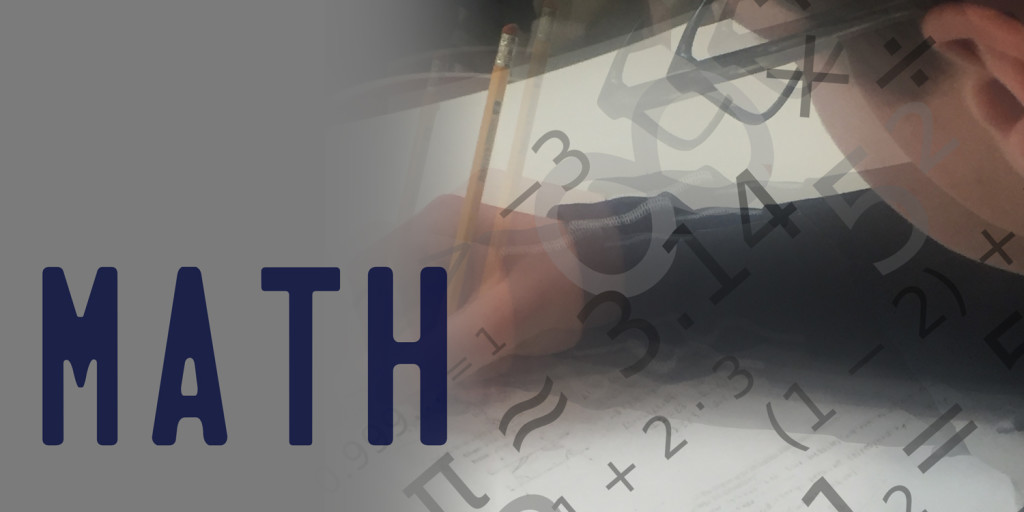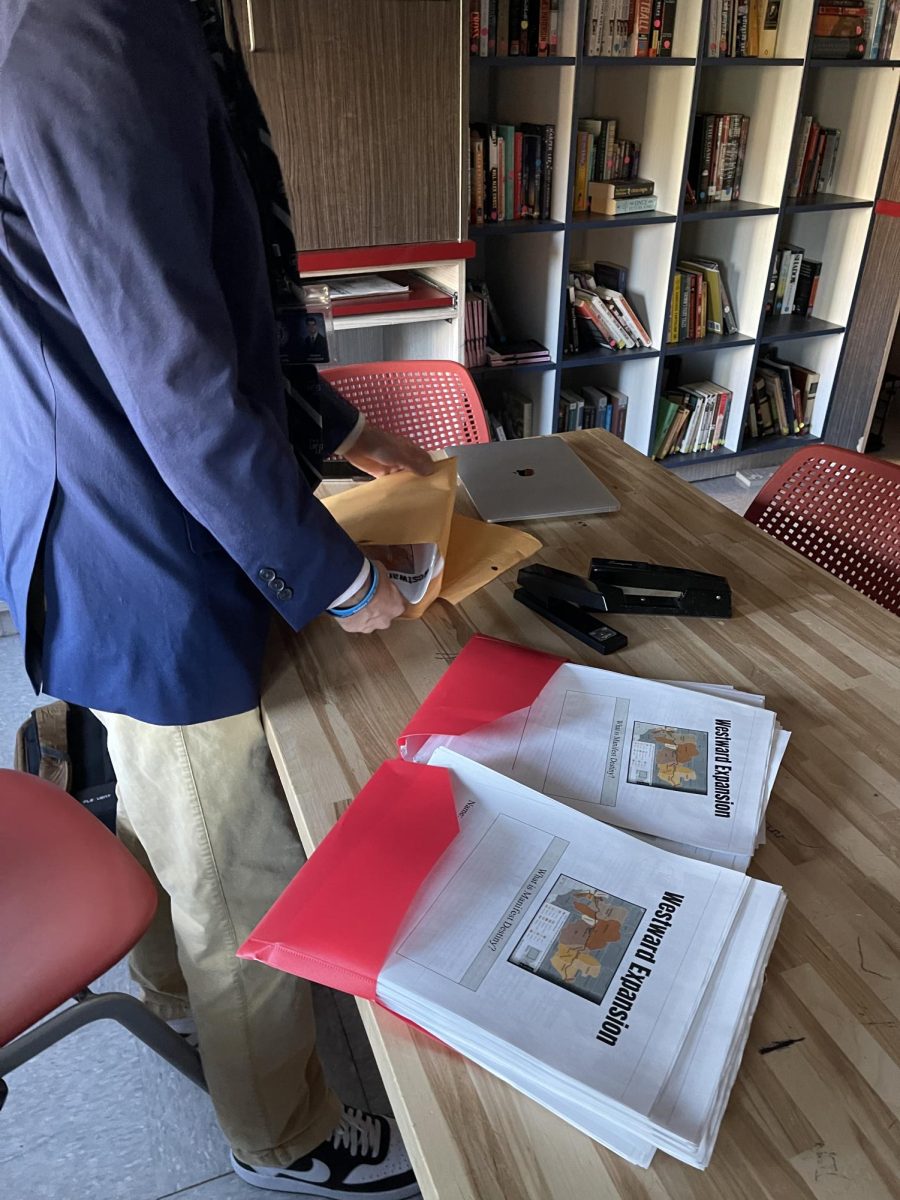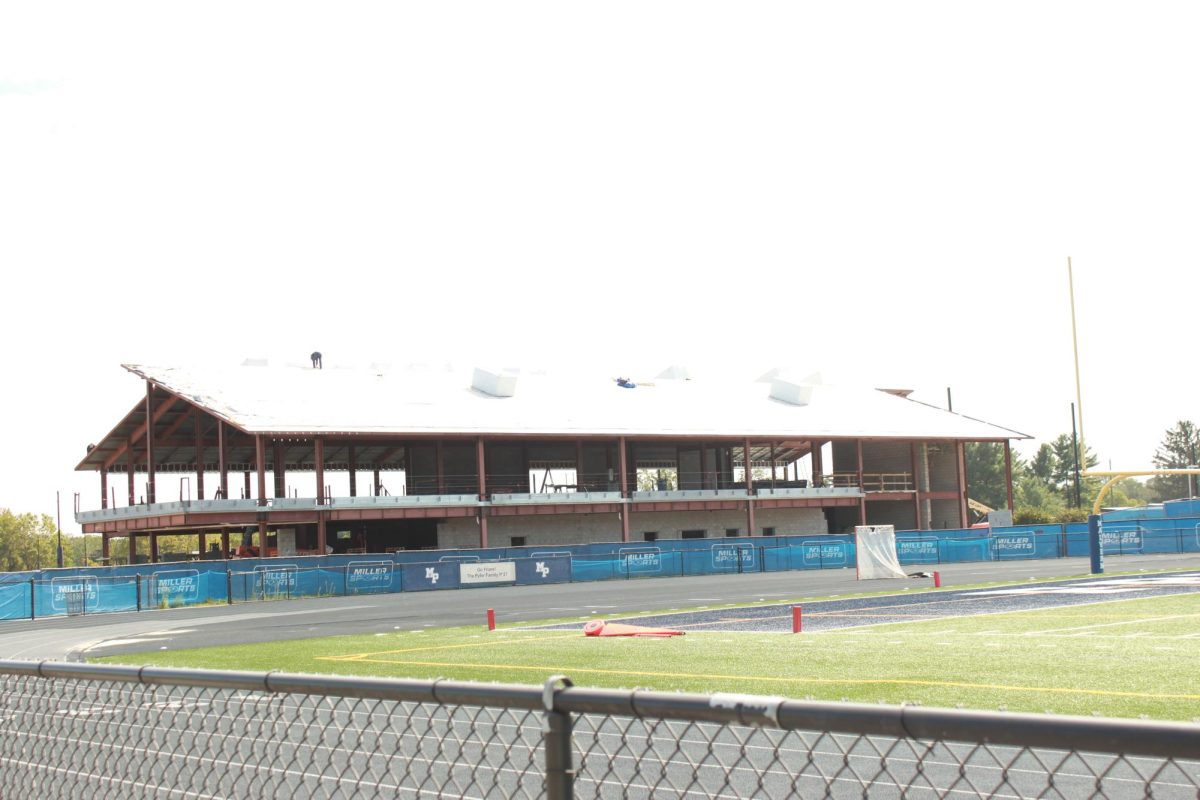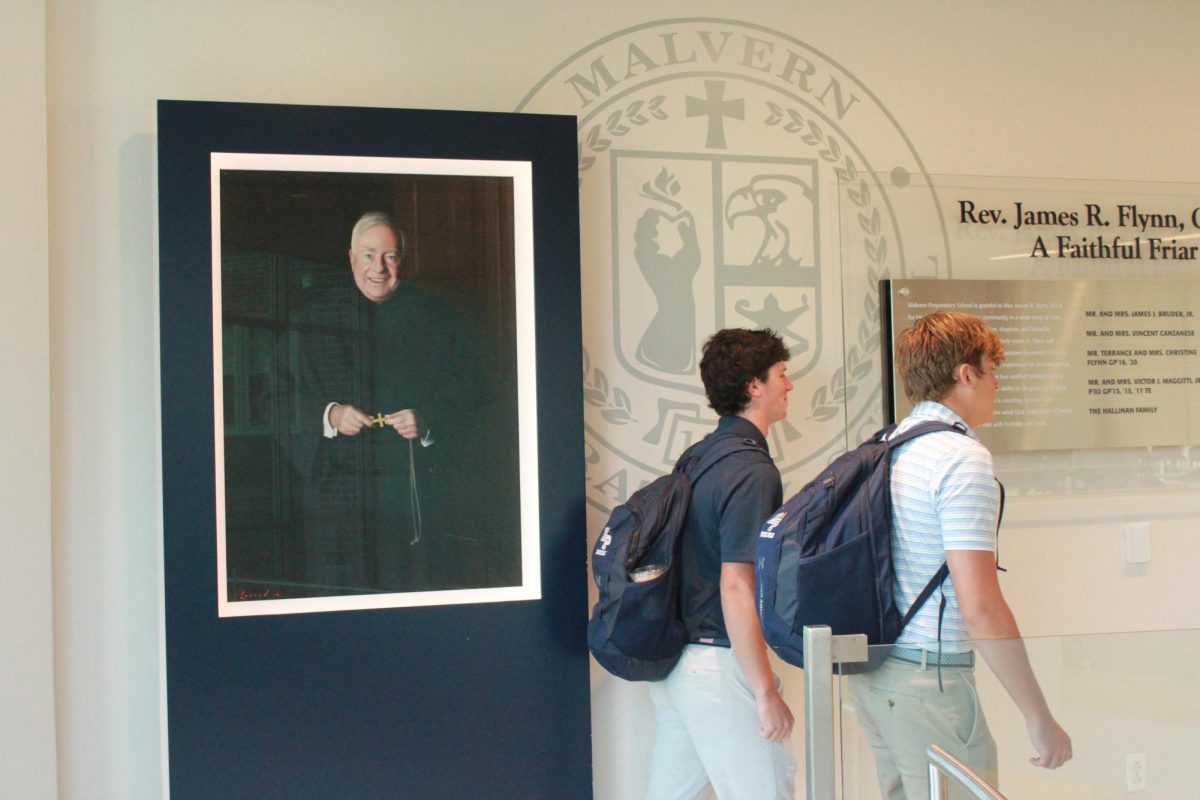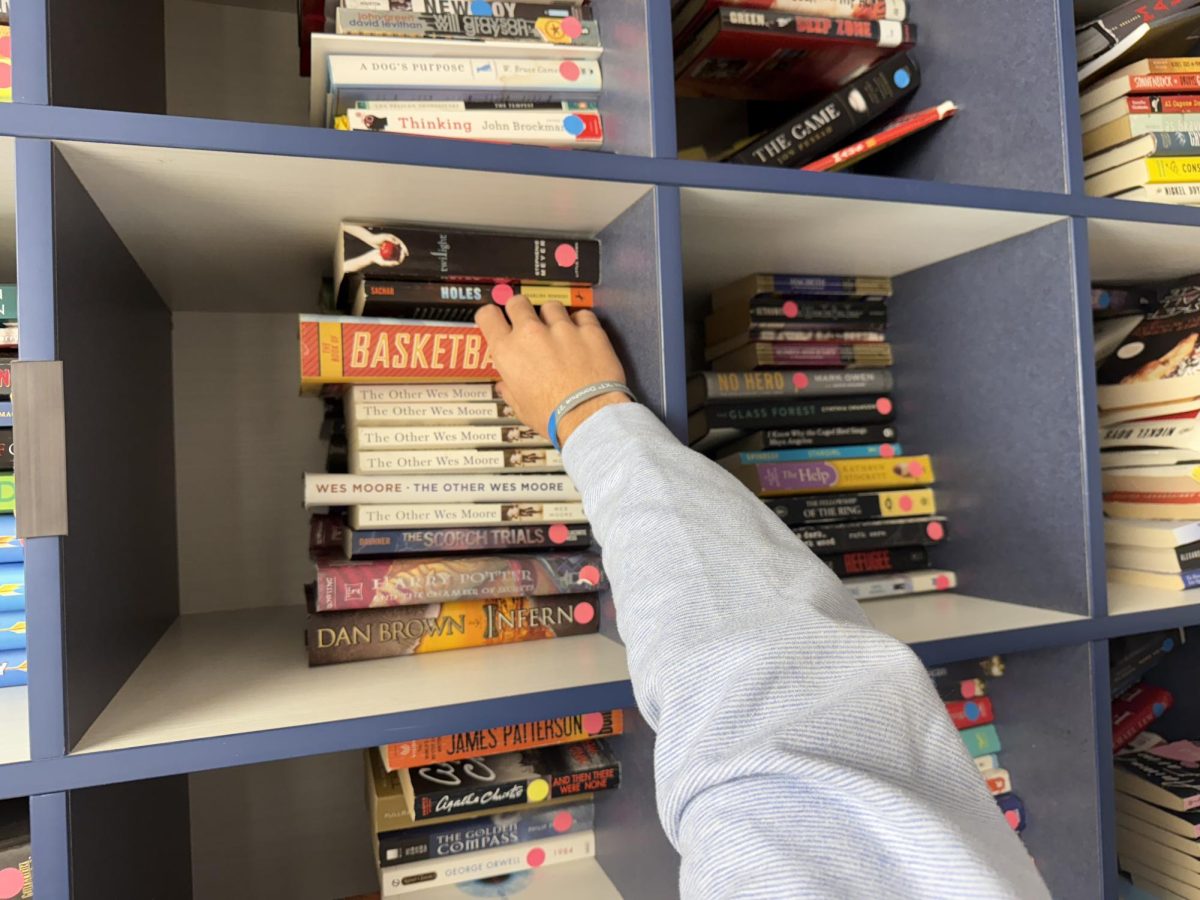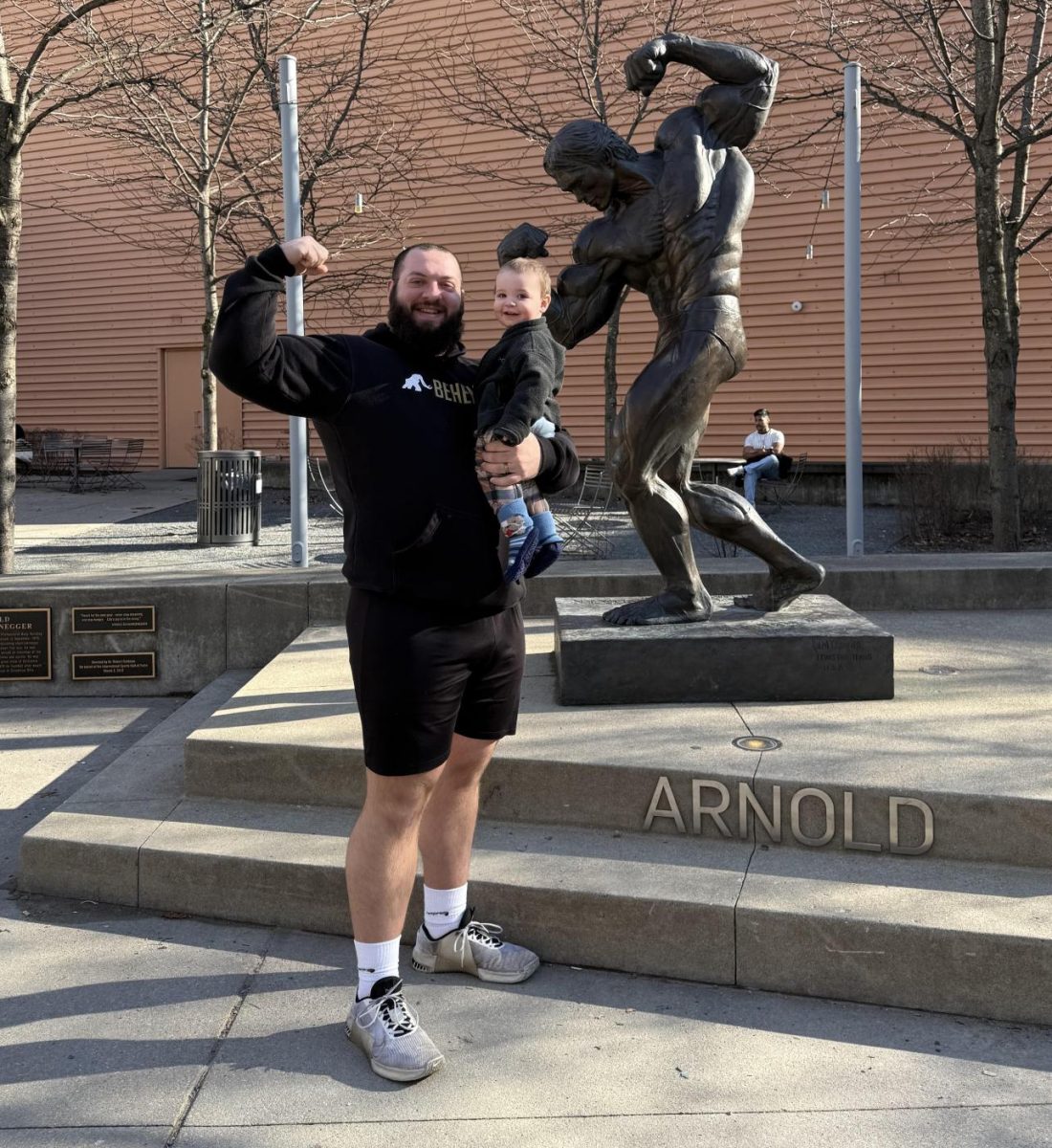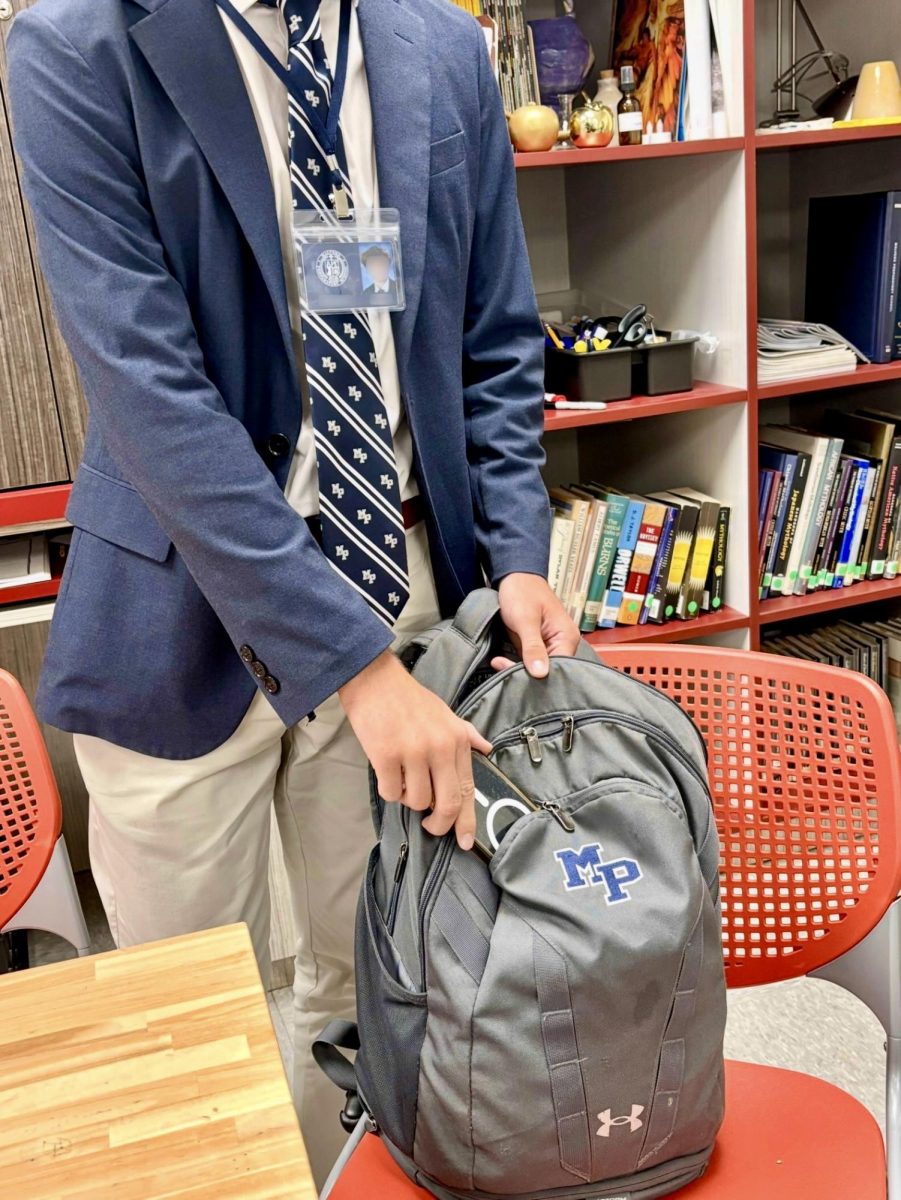Is math still about getting the right answer, or is it more than that?

When Mr. Kevin Moore, the AP Calculus and Academic Algebra II teacher, learned math it was simply about skill and drill process.
“The concepts are all still the same and the content is still the same,” Moore said. “However, when I was learning it, there was very little collaboration. Now, it’s more about learning the material, collaborating with others, and using others to have discussions about math.”
Math Department Leader Ms. Lauren Lesch believes it is the teacher’s responsibility to share their love of math with others willing to learn.
“We are using different ways of assessing the students, finding ways of providing them feedback, and looking to get the student’s reactions,” Lesch said. “It is important to constantly be evaluating ourselves as teachers and math educators.”
Ms. Lesch, who is also the AP Statistics and Precalculus teacher, believes it’s not all about the final answer.
“I absolutely look at the process in addition to whether a student is getting it right or wrong,” Lesch said. “If the student is getting it right, let’s see how he got there. If the student is getting it wrong, let’s see how he got there and can we identify where he went wrong. It’s important to identify where [the student] went wrong.”
Freshman Greg Gaasche thinks his Honors Geometry class is not too difficult but that there are some tricky things about it.
“The math at my old school was easier,” Gaasche said. “The teacher guided everyone through it; whereas here, if you truly want to learn you have to meet with the teacher during community time.”
Gaasche says his goal for a class revolves around maintaining a high GPA and earning a the grade he wants, while Sophomore Max McCool has a different motivation.
“My main goal in math is to learn and develop new skills that I will be able to use later on in life,” he said.
Max is in Algebra II Honors with Ms. Zulli, and he likes her style of grading.
“Ms. Zulli teaches by both correctness and process,” Max said. “I agree with this style of grading because one without the other does not do a student any good. The process is just as important as the correct answer, and the correct answer is just as important as the process.”
Junior Will Burgess and senior Pat Finley both believe math will come in handy for the future.
“My main goal in math is to prepare for the SAT and for my college major, business,” Burgess said. “I know that math is a big part of business and that is why I take it so seriously.”
“I am looking to be an engineer, which is heavily based on math and physics,” Finley said. “It’s pretty much applied math.”
In the math classroom at Malvern there’s a mixture between performing and learning. Students perform to get the A/A+ to boost the GPA and learn so that they can apply math toward their futures.


